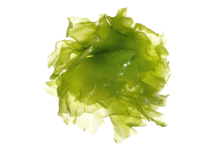Camelina meal is being tested as an ingredient for use in dairy rations in Canada in a bid to enhance milk quality.
University of Saskatchewan is testing different percentages of Camelina meal in feedstock for dairy animals to determine if animals will produce milk with healthy Omega-3 type nutrients.
Cold-pressed non-solvent extracted Camelina meal has been approved to use in broiler chickens up to inclusion of 12% and approval is expected soon for the inclusion of Camelina rations for laying hens industry.
“Recent papers have shown that camelina can have a positive impact on milk fat qualities, so this would be a good time to get some more information,” said Rex Newkirk, research lead for the centre at the university. He said camelina seed is a value added feed ingredient due to its fatty acid profile.
A study at the University of Bucharest found that feeding portions of camelina meal to dairy cows produced elevated amounts of omega-6 fatty acids, polyunsaturated fatty acids and conjugated linoleic acid (CLA).
“We have to do a number of studies to show that the product is efficacious, that there’s no toxic effects, no harm done from feeding the material,” said Newkirk.
Sean Thompson, feed industry liaison works with feeds innovation institute and the Canadian Feed Research Centre, said camelina has been on radar for number of years. To get it registered with CFIA, safety and efficacy is to be proved, for which university is carrying trials.
The centre has two trials planned with the first underway. The cows are fed a formulated diet with a zero to 10 percent camelina mixture.
After the four-month trial, the large amount of data will be organized and the second trial will begin, but with higher levels. The cows will then be fed a zero to 20 percent mixture.
“Once the animal performance along with the milk production quality and quantity is understood, it can be considered to produce on bigger level in Canada,” said Newkirk.
Camelina has excellent yield potential over a short season of 85 to 100 days. It grows well in cool temperatures and is drought and frost tolerant.
Five tonnes of Camelina meal is being supplied for the tests by Saskatoon-based Smart Earth Seeds. “Camelina is a high quality non-GMO source of protein, omega rich oils and high levels of vitamin E,” said Jack Grushcow, CEO of Smart Earth Seeds.
“Our goal is to get local markets to take advantage of these Camelina benefits so we can build local processing infrastructure and deliver benefits to rural communities.”
This can produce softer butter and may convey potential anti-cancer properties.
Source: globalnews











